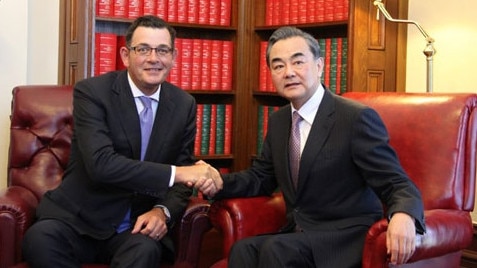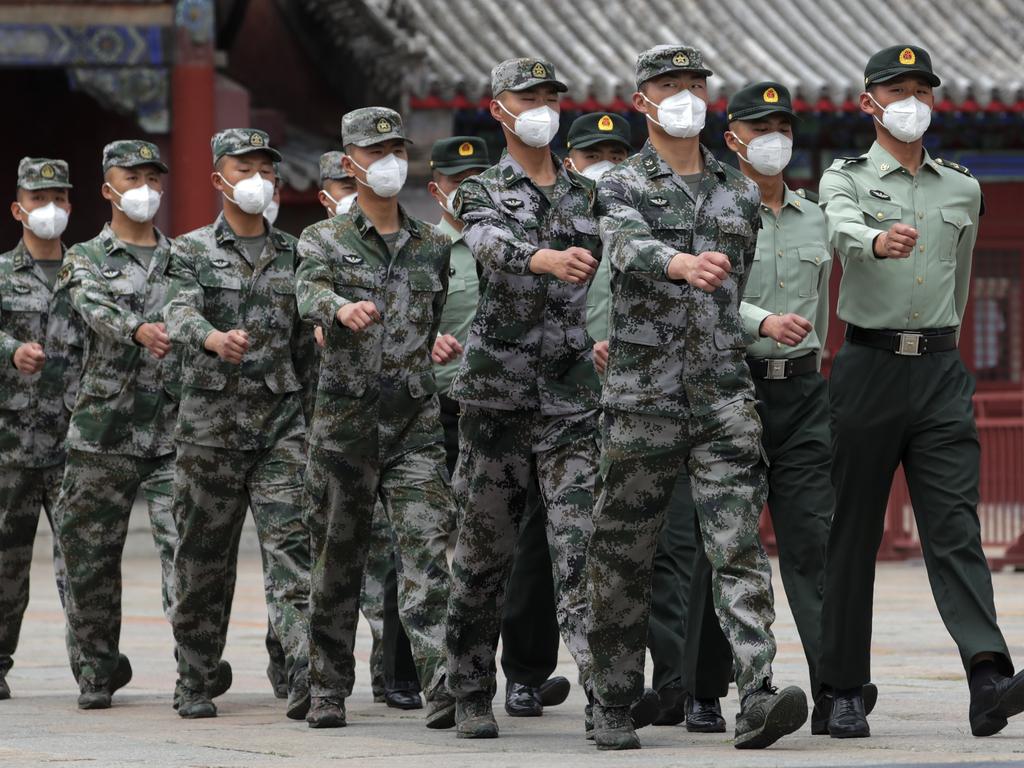
In signing a BRI memorandum of understanding, Andrews contradicted and defied Australian foreign policy on a matter of geo-strategic importance. That is irresponsible and damages Australia’s national interests.
Andrews contradicted federal ALP policy as well. This was more explicit when Bill Shorten was Labor leader because Shorten had decided to back bipartisan Australian policy.
That policy is that while Australia welcomes Chinese investment in principle, it will not sign up to the BRI as a program. This is because the BRI is freighted with Chinese geostrategic ambition and has been highly problematic in many countries. Instead, Canberra’s view is that each Chinese investment proposal should be assessed individually on its merits.
Andrews’s irresponsibility and his determination to act against the national interest and national policy should be a bigger issue. It is almost unprecedented.
You can imagine how reluctant Albanese and Marles are to get into a policy fight with Victoria’s Labor government. But they and Labor’s foreign affairs spokeswoman Penny Wong deserve praise for the way they have stuck to Australia’s national interests in the spate of recent disputes between Canberra and Beijing.
Albanese said in a radio interview that if he became PM he would not be signing up to the BRI and that he had never supported the Andrews government’s deal.
Marles said in a press conference: “A future Labor government would not be signing a Belt and Road agreement with China. When it comes to Chinese investments in infrastructure projects, that’s a matter which we think should be taken on a case-by-case basis and we should proceed down that path with some caution.”
The rebuke is clear and explicit.
Previously, Labor frontbench senator Kimberley Kitching had, quite courageously, been the main Labor voice making the obvious case that Andrews was wrong in principle to back the BRI and set up a state foreign policy against Australia’s foreign policy. Kitching’s remarks were in support of what turned out to be the Albanese-Marles official federal Labor position. Albanese has stressed, for example, that Labor is “as one” with the Morrison government in calling for an independent inquiry into the outbreak of coronavirus.
Victorian Treasurer Tim Pallas bizarrely argued that the federal government’s call — with which, remember, Albanese is at one — “vilified” China. He blamed the Morrison government for the punitive tariffs and other restrictions Beijing has lately applied against us. Does Pallas also blame federal Labor? Andrews endorsed Pallas’s remarks.
Labor agriculture spokesman Joel Fitzgibbon also contradicted Albanese, Marles and Wong by saying the Morrison government was responsible for the Chinese tariffs. All this shows that Labor is deeply divided and a bit all-at-sea on China, but Albanese, Wong and Marles have so far held it together pretty well at the leadership level.
It is difficult for any opposition to offer bipartisan support to a government. Bipartisanism normally means the government wins. But both sides of politics have mostly maintained a bipartisan position on national security.
They do this for two reasons. One, they both genuinely value national security. And two, although it may not always be obvious, it is good politics. Mark Latham as opposition leader attacked George W. Bush at the height of Bush’s unpopularity. But he suffered in the polls because people thought Latham threatened our US alliance.
A similar thing happened to Bill Hayden as opposition leader. Similarly, in government, Bob Hawke reacted furiously to KGB efforts to cultivate and compromise former senior Labor Party official David Combe. Hawke cut off all contact between Combe and members of the cabinet. In doing this, he convinced the whole of Australia, and international actors, that he and his government took national security seriously.
Unusually, Hawke won votes on national security. Even if it is generally difficult for Labor to win on national security, it is nonetheless very easy for it to lose votes in enormous quantities on that issue. So Albanese, Marles and Wong, in great contrast to Andrews, have bolstered national security and helped keep Labor electable.
Andrews seems to argue that the BRI has no national security element. If that is his argument, it is a remarkably ignorant one. US Secretary of State Mike Pompeo added his voice this week in opposition to Victoria’s BRI deal. He wrongly thought the deal could involve telecommunications and the US embassy had to clean up after his remarks. But his statement nonetheless underlines the fact that the BRI is a geostrategic issue.
The BRI has been used to entrap Third World countries into unsustainable debts, which Beijing can then transform into brutal political leverage. Thus Beijing now owns a port in Sri Lanka. It also has a heavily fortified naval base in Djibouti.
It has sometimes left Third World nations crippled with debt. The BRI has sometimes produced useless and shoddy infrastructure. It has sometimes involved the exclusive use of a Chinese workforce with no real technology transfer and little economic gain for the host country.
We can be confident nothing like this will happen in Victoria, not because we can have confidence in the Andrews government, but because the federal government won’t let any such thing happen. Any Chinese investment must be approved by the Foreign Investment Review Board. Any Chinese participation in infrastructure building will have to go through normal government procedures. Any Chinese workforce will need federal immigration approval.
It is possible that some Victorian firms may get a sliver of work with Chinese BRI projects in third countries. But if the price of getting that work is for the Victorian government to campaign against Australia in a geostrategic dispute, that is too high a price.
The federal government and the Department of Foreign Affairs and Trade are adamant that advance consultation by the Victorians with Canberra over this deal was minuscule and meaningless.
Andrews has set himself up as making geostrategic foreign policy decisions against Canberra. He should now answer questions on Beijing’s actions in Hong Kong, its internment of a million Uighurs, its imprisonment of human rights lawyers, its smashing up of Christian churches, its actions in the South China Sea. If his answer is that these are matters for a federal government not a state government, then that should also have been his answer on the BRI.








This week the federal Labor leader, Anthony Albanese, and his deputy, Richard Marles, explicitly repudiated Victorian Premier Daniel Andrews over his decision to sign up to China’s Belt and Road Initiative.